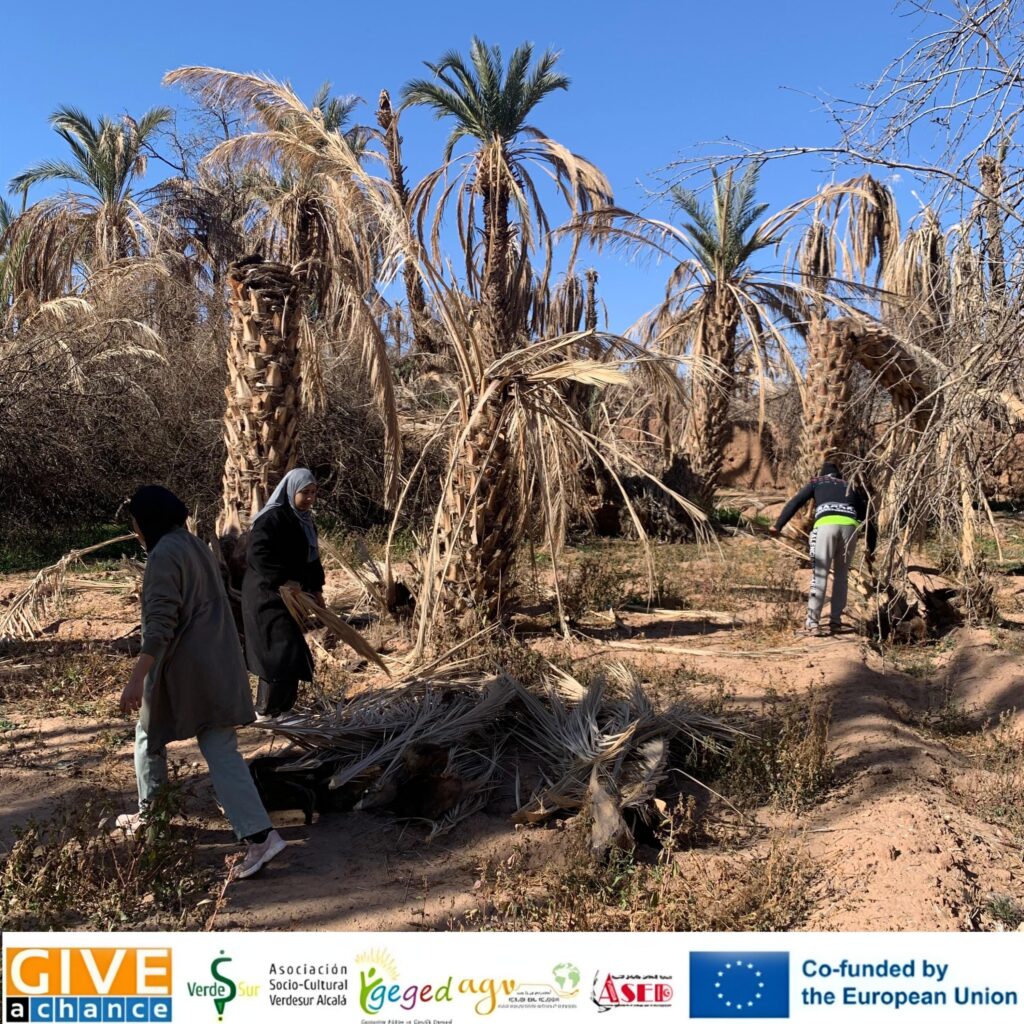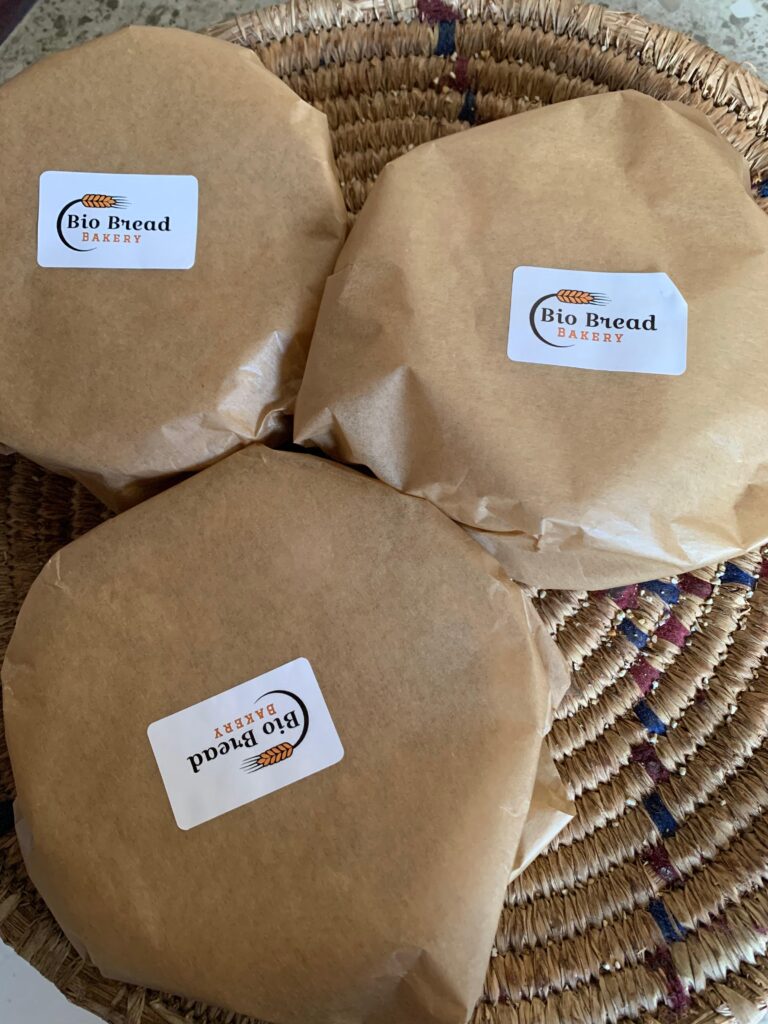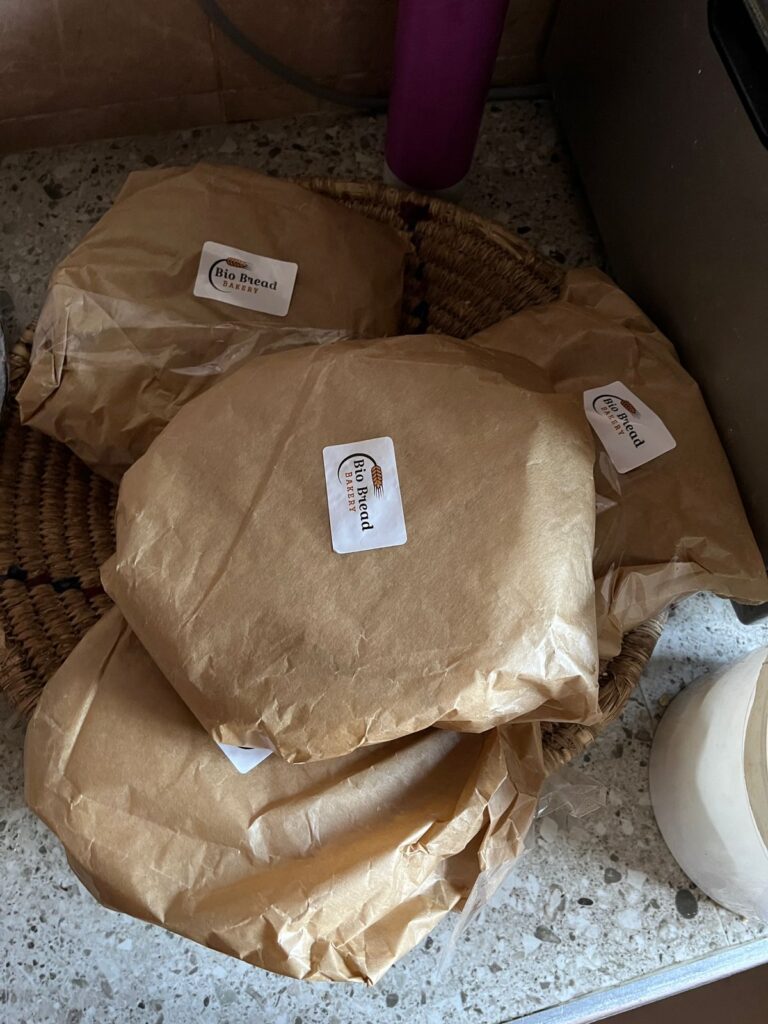Aicha Ait Si and Zineb Ben Hadda
Get in Touch: https://www.instagram.com/bakery_bio_bread/
Bio-Pain ( Bio Bread ) project was implemented to tackle with the challenges in front of unemployment, environmental degradation, and poor dietary health in rural Morocco. The project was implemented in Tiguite. Aicha engaged on the community development while Zineb focused on the health and nutrition to develop the project activities according to the needs of the local community.
The need behind the project derived from the persistent struggles faced by women in our village such as widows, young school dropouts, and those living without stable income. We have as well realised the issues concerning the palm and tree waste which was unmanaged and serious environmental risk triggering the environmental issues in the local ecosystem. Rather than seeing, both issues as separate, we decided to connect and developed the Bio-Pain model to provide job opportunities for the excluded women, recycle the natural waste and provide healthy nutrient for the diabetic individuals.

At first, we have mobilized the community after identifying three women who were unemployed willing to engage new trade. They became the core team in the first stage of the project. We have developed the traditional oven, then we have developed different types of bread by using the different ingredients. We have collected the excess palm trees and use it as a fire to cook to help the environment and reduce the palm tree waste in the community. This method not only reduced waste but also cut down on fuel costs. To support the startup phase, we purchased basic supplies such as flour, salt, and yeast from local farmers, reinforcing the circular economy of Tiguite. Our early production phase was modest, just enough to supply the village and nearby families but the results were immediate: fresh, affordable, nutritious bread and women empowered with new skills and purpose. The feedback from the first circle was positive and encouraging. The developed bread helped the diabetic people to receive decent nutrition.
Through mouth-to-mouth marketing, we have received over 155 people and we have provided the developed bread to the local community organizations during implementation of the events. We have applied to the local development program as INDH (Initiative Nationale pour le Développement Humain) and Youth Platform of Morocco to receive credit or grant. These engagements provided us access to trainings in social entrepreneurship, marketing, and sustainable business practices, laying the foundation for long-term growth.
The project contributed to the issues concerning to the environmental as well as the healthy life style especially for the people with diabetic issues. As community members observed tangible improvements in their daily lives, they became more active in supporting and participating in project activities, generating a collective sense of ownership tıo our activities. We as well fostered increased understanding of sustainable practices and nutritional education among the villagers, particularly highlighting the importance of local resource management and dietary choices. In the future, we plan to provide bread for the schools which we have already made connections to sustain the project as well as generate income for the women involved in the project activities as the bakers so that the project creates more employment as well as promotes the healthy nutrition in the local community.




